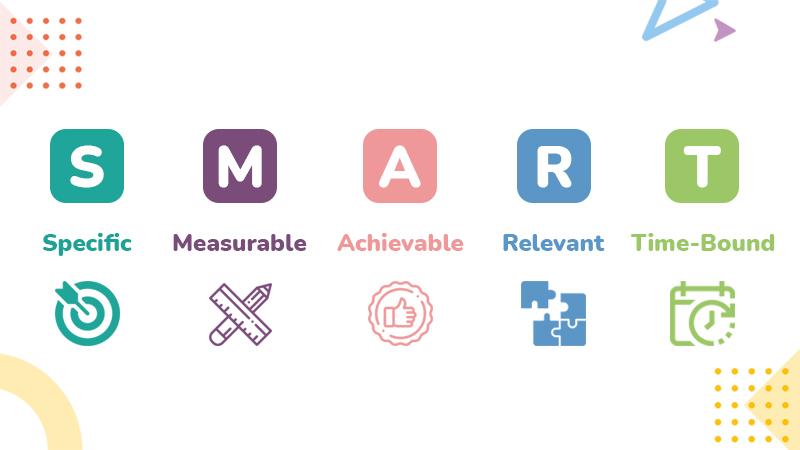How To Use Social Media For Your Small Business

Are you part of a small marketing team and wondering how to stand out on social media?
Learn the different ways that social media can help modernise your approach to marketing. Understanding social media for a small business is vital to expanding, growing, and succeeding in today’s social media crazy world. The benefits of a small business using social media are almost endless, heightening your focus on community and individual customers. Social media is a powerful platform for connecting directly with consumers, avoiding the need for third party involvement.
Find out how to use social media effectively for your business, by tapping into social media’s unique benefits.
Why Should You Create A Social Media Marketing Plan?
In today’s world, social media is no longer optional. Validating your small business with a strong social media presence is essential to reaching your target audience and retaining customer loyalty.
Where do you start? Creating a social media marketing plan ensures your social media efforts are beneficial and supportive of your goals and objectives.
A social media strategy summarises the overall aim and how to achieve it on social media, outlining the actions and implementation needed to grow and evolve your small business.
With the right planning and engagement, you can build and maintain an active community around your brand.
Growing your business with social media has huge advantages:
Become an industry leader
Manage your brand’s reputation
Create a strong sense of community and brand loyalty
Attract new customers and receive informed customer feedback
Carry out low-cost market research to reduce your marketing costs
Increase your market reach on an international scale
Studies show that 55% of consumers learn about new brands on social media, this means limiting or restricting your social media presence can dramatically create negative impacts on your overall business.
These are 3 examples of brands that grew dramatically due to social media:
- GoPro: Instagram following of 19.4M
- PlayStation: Instagram following of 28.9M
- Spotify: Instagram following of 8.4M
What Social Media Channels Should You Use
Increasing brand awareness and creating a hub for a community of consumers is a direct result of investing in social media.
However, it’s crucial to consider the best social media channels for your brand’s marketing objectives, this means understanding which channels your audience is active on. Some social media platforms may not be suitable or worthwhile spending resources, time, and energy on as your audience may not be there.
In today’s digital-first marketing world, customer behaviour and expectations can be clearly observed through their social media actions.
Carrying out audience research will not only provide insights into which channel to communicate with consumers on but help you plan content, messaging, and ads. The best way to secure high conversion rates and a better social media presence is by targeting your audience on the correct social media channel.
With more than 2.7 billion users worldwide, Facebook is usually a firm contender when choosing which channel to focus on. If your small business focuses on video content, Instagram or TikTok may be the best option. Whereas LinkedIn could be your preferred social media channel to tap into a credible and meaningful network of experts in your industry.
Here are our top tips:
Know your target customer
Analyse your current traffic sources
Figure out which channels competitors utilise
Determine which content format (videos, images, guides, case studies etc.) resonates best with your consumers
Ultimately, it’s important to use a mix of targeted social media channels to effectively market your small business on social media.
What Are The Major Social Media Platforms?
Over the past decade, small business owners have increasingly turned to social media platforms to create buzz around their brands. Major social media platforms such as Facebook, LinkedIn, Instagram, Twitter, TikTok, and YouTube, are the initial point of contact for many consumers.
Although not all platforms may accurately tap into your target audience, it’s important to recognise and understand the role each social media channel can have in propelling your small business.

The American online social network service was founded in 2004 by Mark Zuckerberg, Eduardo Saverin, Dustin Moskovitz, and Chris Hughes, students at Harvard University. Facebook is now the largest social network in the world, recently changing its name to Meta with the new focus being the metaverse.
Advantages of marketing on Facebook:
Vital platform for small business sales
Provides key information and insight into consumers’ buying habits
The ability to optimise your online presence
Disadvantages of marketing on Facebook:
Organic reach may be impacted by paying for Facebook Ads
Facebook’s reporting feature can be inconsistent and therefore, metrics may not be reported on correctly
It may not be the most popular channel of communication for your consumers
Unsure what to post? Promoting your website and blog with external links, engaging in customer discussion pages, and asking for feedback are great ways to grow on this platform.

LinkedIn connects professionals around the world creating economic opportunities for all its members. With the popularity of the platform being for 30–64-year-olds, if your target audience is an older, professional demographic this may be the best option for you.
Advantages of marketing on LinkedIn:
Efficient way to reach business specific goals
Cost-effective networking opportunities
Stay on-trend and relevant in your industry
Better position your brand as an industry leader
Disadvantages of marketing on LinkedIn:
Restricted market reach
Time-consuming managing your online reputation
LinkedIn features work to build a sense of network, find and post new job opportunities and tap into groups of like-minded communities for niche-specific discussions.

This photo and video-sharing social media platform was launched in 2010 by Kevin Systrom. The various features from filters, stories, reels, and direct messages make it one of the most popular ways to build a strong rapport with consumers.
Recent studies show that the majority of Instagram’s audience are Millennial or Gen Z users, making it the perfect platform to market small businesses that aim to tap into this market.
The vast range of popular features from Instagram reels, hashtags, ads, and analytics, means the platform can drastically improve and transform your branding and reach. This is a powerful and affordable way to reach new customers and you’re able to make sales directly on the app.
Advantages of marketing on Instagram:
Boosts content marketing
Receive strong audience insights for informed decision-making
Easy to target and retarget your audience
Disadvantages of marketing on Instagram:
Copyright ownership may impact your content creation
Not correctly using Instagram’s features such as hashtags or understanding the algorithm
Sharing high-quality content, experimenting with various features, reposting user-generated content and fun Instagram reels is the ideal strategy to secure continued success for your small business on this platform.

Twitter’s primary purpose is to act as a social media site that connects people and allows them to freely share their thoughts and opinions. Founded in 2004, the platform emerged from the podcasting venture, Odeo.
Twitter allows social businesses to build social relationships with consumers, effectively reaching the right audience. Twitter’s microblogging features encourage its audience to share and interact with trending ‘tweets’ making it a great platform to fuel conversation around industry trends and relevant news, as well as your small business.
Advantages of marketing on Twitter:
Directly interact with consumers, building genuine connections
Clearly showcase your brand voice and identity
Deliver customer service effectively, reducing complaints and disputes
Disadvantages of marketing on Twitter:
Requires a lot of time and resources to constantly keep up with daily posting
Public negative criticism concerning your product or service
Here are our tips for posting on Twitter:
Ensure your brand tone is conversational and engaging
Keep it short and sweet, Twitter has a restricted character number for posts
Focus on images, GIFs, or videos
Redirect consumers to your website or blog articles
Monitor trending conversations and events and engage with them
Respond to complaints, comments, and questions timely
Highlight good reviews and recommendations
TikTok

TikTok launched in 2016 by the Chinese start-up company, ByteDance and has taken the online marketing world by storm in recent years. The platform’s heightened focus on creating, sharing, and discovering short video content made it popular with young people across the world. Its 80 million monthly active users are predominately aged 16-24, making it a vital channel of communication for Gen Z consumers.
The meteoric rise of the platform has propelled its influence across industries, reflecting key social media trends centred around video content.
The short-form videos that are between 3 – 60 seconds long, create organic viral content, dramatically increasing brand awareness.
Advantages of marketing on TikTok:
Users have a positive reaction towards branded content as it’s unique and less targeted
Strategically use influencer marketing
Create high-quality content cost-effectively
E-commerce / in-app purchases are set to take off on this platform over the next few years
Disadvantages of marketing on TikTok:
Content format limitations
Audience restrictions
Unsure how to tap into your younger audience on TikTok?
Start by crafting memorable and catchy video content that may encourage users to use your product or service. The best content is usually centred around a simple idea.
Capitalising on popular TikTok influencers within your industry is a great way to instantly attract new customers.
It’s also worth creating a hashtag for your small business and encouraging consumers to use it whenever they post, boosting user-generated content and brand awareness.
YouTube

Founded in 2005, YouTube is the world’s second-largest internet search engine, created to change the way we interact and create video content. The video-sharing service encourages users to watch, like, upload, share, and comment on video content ranging from how-to videos to ‘Vlogs.’
The predominant age group using YouTube is between 15-35, making it an important channel to consider when trying to communicate to a wide audience.
Content variety and the various features from choosing your country, keywords, and recommendations, allow you to tap into the platform’s traffic and audiences.
Advantages of marketing on YouTube:
Heavy traffic of consumers searching for content
Higher visibility on Google
High conversion rates
Disadvantages of marketing on YouTube:
Highly competitive recurring high-quality, engaging content
Time consuming process to create value-adding videos
Setting Social Media Goals and Objectives
Making the most out of your social media strategy starts by setting realistic and measurable objectives and goals when using any social media platform.
Not only will this help you create highly targeted content but increase your sales and branding. Setting SMART (Specific, Measurable, Attainable, Relevant, and Time-bound) social media goals outlines exactly what you aim to achieve with your social media activity, aligning with your overall business goals. The importance of identifying and solving problems, as well as providing direction acts as the basis for your social media goals and objectives. Establishing clear social media goals helps you figure out what your small business needs and how social can help you get there.

Unsure which social media goals and objectives to implement in your small business? Consider these:
Compelling content for social media
Identifying goal metrics
Tracking results over-time
Grow your social community size
Strengthen engagement across channels
Positive brand perception
Increase customer satisfaction
Metrics and KPIs vary by social media platform and can be used to determine how well your social media marketing plan is going. Tracking these different aspects of your social media activity can help you make informed decisions to improve your social performance.
To effectively understand if your strategy is working, it’s important to consider these key metrics and KPIs:
Key social media metrics:
Brand mentions
Follower growth
Reach
Impressions
Engagement rate
Key social media KPIs:
Clicks
Likes
Shares
Comments
Profile visits
Active followers
Individual platform insights will report on KPIs like the above. When starting out, don’t waste time checking metrics every day. Engagement and growth is likely to be slow initially and you don’t want to be disheartened.
Top Tip: Always Provide Value Before Selling
An important reminder is that social media is not a sales platform.
What does this mean? An effective social media marketing plan considers the journey of a consumer and the community aspect around the brand.
As a business owner, you shouldn’t always focus on selling via social media because coming across as too ‘salesy’ may be the reason consumers are not making a purchase.
Providing value and building an engaged audience is one of the key aspects of a social media strategy, by interacting with prospects and customers.
Think of your social media presence as a means to share your vision, become part of the conversation and solidify your credibility in your industry. By using social media to develop personable interactions with your target audience, you’ll find that engagement will grow and sales will follow.
You don’t have to sell on social media to engage your audience and show your value. Check out this source to tap into the power of social media: ElleSynergy.
If your small business needs guidance or help with your social media presence, we have a whole Social Media topic in our Branding and Marketing module on the My New Venture platform.


